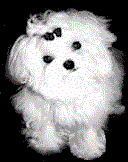

- Phone
- Email puppypetite@aol.com
-
Address
8002 17th Ave, Brooklyn NY 11214

Understanding Pomeranian Puppies And Potty Training Them
The Pomeranian breed, often referred to as 'Pom', is a compact, active toy breed. They are renowned for their vivacious personality and fluffy double-coat that comes in a variety of colors. Originating from the Arctic region, these adorable canines were initially large sled-pulling dogs. Over generations, they have been bred down in size but their sturdy, bold demeanor remains intact. Pomeranians are intelligent, easily trainable, and make excellent companions for those living in apartments or houses with small yards. Despite their small size, they have a loud bark and can be quite protective, making them good watchdogs.


Temperament
Pomeranians are renowned for their outgoing and spirited temperament. They are highly extroverted, intelligent, and eager to please, traits that often make them the center of attention in any setting. Their active and curious nature makes them excellent explorers who are always on the move, seeking new sensations and experiences. Despite their playful energy, Pomeranians are also known for their love of relaxation and comfort, enjoying cuddle times with their owners. It's important to note that they can be quite independent and, at times, a bit stubborn. Early socialization and positive reinforcement training methods work best for this breed.
Exercise Needs
Despite their small size, Pomeranians are energetic, active dogs that require regular physical exercise and mental stimulation. A daily walk, paired with some playtime can be sufficient to meet their exercise needs. Interactive toys can also be utilized to keep them mentally stimulated.
Grooming
Pomeranians, with their thick double-coat, require regular grooming to keep their coat looking its best and to prevent matting. A weekly brush with a high-quality slicker brush helps to remove loose hair and keeps the coat fluffy and clean. Bathing can be done once a month with a gentle dog shampoo to keep their skin healthy and their coat shiny. It's necessary to pay attention to their dental health as well, regular brushing of teeth with canine toothpaste is recommended. Their ears should be checked weekly for any signs of infection, and their nails should be trimmed once a month.
Training
Training a Pomeranian puppy requires consistency, patience, and positive reinforcement. These intelligent dogs are typically quick to learn but can exhibit a stubborn streak, so it's important to ensure training is engaging and varied to hold their interest. Start with basic commands like 'sit', 'stay' and 'come' and gradually move on to more complex commands. Socialization from a young age is essential; exposing your Pomeranian to a variety of people, animals, and environments can help them become a well-adjusted adult.
Potty Training A Pomeranian Puppy
Training a Pomeranian puppy can be both a pleasurable and rewarding experience, provided that you follow the right steps and maintain patience throughout the process. These intelligent and spirited dogs can learn quickly when guided appropriately, developing into well-behaved and sociable pets.
- Establish a Routine: Pomeranians, like most dogs, thrive on routine. Establish set times for meals, potty breaks, walks, and training sessions. Consistency is key to helping your puppy understand what is expected of them.
- House Train: Begin house training immediately. Take the puppy to its designated potty spot frequently. Praise and reward your puppy when it correctly uses the spot to reinforce the behavior.
- Crate Train: A crate can provide a secure, safe space for your Pomeranian. Introduce them to the crate gradually and make it a positive experience. Always associate the crate with pleasant things like treats and toys.
- Socialize: Expose your puppy to different environments, people, and other animals to help them become well-adjusted and confident. Make sure these experiences are positive to avoid creating fear or anxiety.
- Basic Commands Training: Start teaching basic commands like 'sit', 'stay', 'come', etc. Use positive reinforcement techniques such as treats, praise, or play as rewards.
Training a Pomeranian puppy takes time, consistency, and patience. But the effort put into training your puppy will ensure that you have a furry companion who is well-behaved, sociable, and a joy to be around. Remember, the goal is to establish trust and a bond with your pet, making the training process a part of your daily routine filled with love and fun.
Establishing a Puppy Schedule
Establishing a schedule for your Pomeranian puppy is a critical part of the training process. It helps them understand what is expected of them, and reduces the likelihood of accidents or behavioral issues. The routine should include mealtimes, potty breaks, walks, playtime, and sleep.
- Mealtimes: Regular feeding times help with digestion and house training. Puppies typically need to be fed three to four times a day. Consistency in feeding times can also help control when your puppy needs to go potty, making house training easier.
- Potty Breaks: The rule of thumb is that a puppy can control their bladder one hour for every month of age. For instance, a three-month-old puppy should be able to hold it for three hours. Taking your puppy out for potty breaks at regular intervals according to this rule, and especially after meals, can help with potty training.
- Walks: Exercise is important for your puppy's overall health and happiness. Regular walks stimulate their mind, help them expend energy, and provide opportunities for socialization. Try to have at least two walks a day, one in the morning and one in the evening.
- Playtime: Play is an important part of your puppy's development. It helps them learn important social skills and can be used as a form of reward during training. It's also a great way for you and your puppy to form a bond.
- Sleep: Puppies need a lot of sleep. Make sure your puppy has a quiet and comfortable place to sleep and try to keep their bedtime and wake-up times consistent.
Establishing a routine for your Pomeranian puppy makes the training process easier for both of you. It may require some flexibility and adjustments in the beginning, but once your puppy gets used to the routine, it will simplify your life and create a happy and secure environment for your pet. Remember that patience, consistency, and positive reinforcement are key during this training process.
